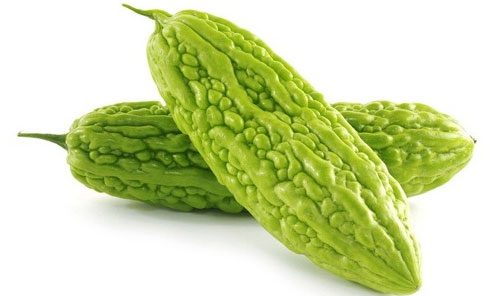Bitter melon is a highly medicinal food, regarded as a “miracle drug” for health and skin. However, not everyone can consume it.
Who Should Avoid Bitter Melon
Bitter melon, also known as bitter gourd, belongs to the gourd family. The fruit of the bitter melon is bumpy and has a bitter taste. Bitter melon is rich in various vitamins and minerals, such as vitamin C.
According to Traditional Chinese Medicine, bitter melon has a bitter taste, is cooling in nature, and serves functions such as clearing heat, improving vision, and detoxifying. It is suitable for symptoms caused by heat, thirst, and helps to improve eyesight, cool the heart, and aid digestion. Furthermore, it has the effect of lowering blood sugar, reducing swelling, treating toxins, enhancing immunity, and its seeds are known to nourish the kidneys and invigorate yang.
To treat rashes, slices of bitter melon can be rubbed on the skin. Boiling it to drink can help dispel heat. Dried slices of bitter melon are an effective remedy for fever.
Modern medicine recognizes that bitter melon has antibacterial and antiviral properties, fights cancer cells, and significantly supports cancer patients undergoing radiation therapy.
Although bitter melon is very beneficial for health, not everyone can regularly consume it.

Bitter melon has a bitter taste, is cooling in nature, and serves functions such as clearing heat, improving vision, and detoxifying…
1. Pregnant and Breastfeeding Women
Bitter melon can cause uterine contractions, bleeding, and may lead to miscarriage. Additionally, it stimulates the uterus and can result in premature labor. Breastfeeding women should also avoid bitter melon as some harmful components may be transmitted through breast milk.
The toxicity in adults is low, but it poses risks for children. Although there have been no reports of bitter melon being dangerous for fetuses in Vietnam, previous studies have shown that bitter melon seeds can cause miscarriage and that the fruit may have mutagenic effects. Therefore, it is advised that pregnant women refrain from consuming bitter melon.
2. People with Digestive Issues
While consuming bitter melon daily is generally healthy, excessive intake can lead to diarrhea and stomach issues. When using bitter melon (in any form), it should not be combined with certain herbs or products containing them. Bitter melon is cooling in nature and should not be consumed by those with cold digestive disorders.
3. Individuals with Low Blood Pressure
Those with low blood pressure should also avoid bitter melon. Bitter melon is known to reduce blood pressure, so excessive consumption can lead to low blood pressure, causing headaches and dizziness. It is particularly advisable for patients with low blood pressure to limit their intake.

Individuals with low blood pressure should also avoid bitter melon.
4. People Prone to Headaches
According to an article on NCPI, bitter melon contains charantin and polypeptide-P, which help lower blood sugar by limiting glucose absorption. These compounds are often used to treat diabetes and hypertension. However, they can also cause headaches due to their blood pressure-lowering effects.
Additionally, some cases have found that vicine in bitter melon seeds can lead to poisoning with clinical symptoms such as headaches, abdominal cramps, or even mild coma.
5. Individuals with Liver or Kidney Issues
Bitter melon is hard to digest and can cause bloating in those with liver or kidney problems. Furthermore, individuals deficient in G6PD (an enzyme crucial for red blood cell metabolism) should absolutely avoid this fruit.
6. Recently Operated Patients
Bitter melon affects blood sugar control after surgeries. It is best to stay away from it if you have recently undergone a surgical procedure.



















































